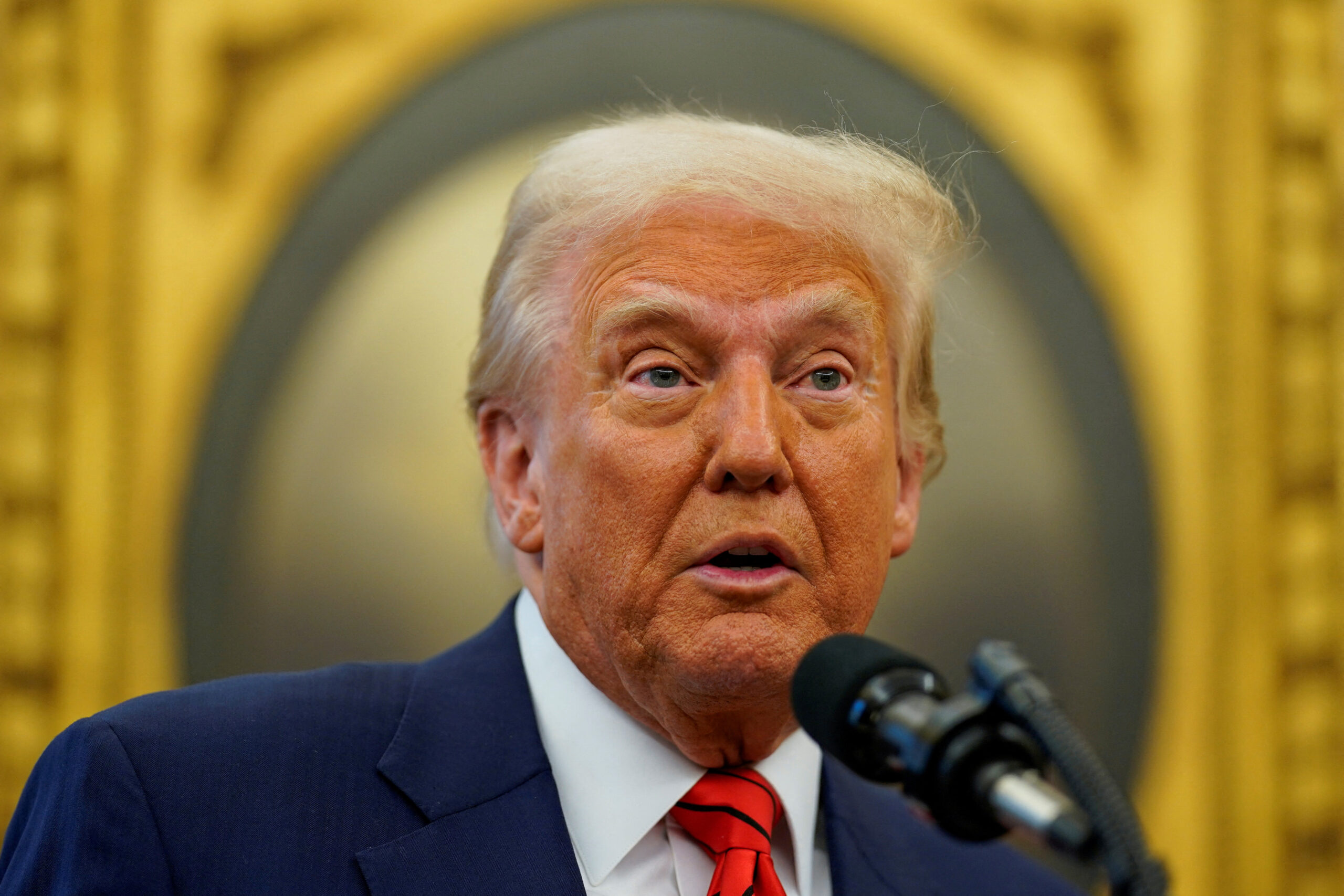While Wall Street sweats and political pundits debate, John Carney, Finance and Economics Editor for Breitbart, is offering a much different take on the market volatility that followed former President Donald Trump’s sweeping new tariff proposals: don’t panic—this is a long-overdue correction and the start of a sustainable economic boom.
Carney joined Amy Jacobson and Chris Krok on Chicago’s Morning Answer to explain why the economic establishment’s meltdown over Trump’s latest moves is misplaced — and why tariffs are more than just trade tools. “This isn’t a recession,” Carney emphasized. “It’s a realignment.”
Trump’s Message: Be Strong, Don’t Be a ‘Panakin’
Earlier this week, Trump posted a characteristically blunt message on Truth Social, telling Americans to “be strong, courageous, patient” and not to be “panakins” — his new nickname for those panicking over the market downturn following his tariff announcements.
But with major indexes posting losses and some high-profile investors — like Barstool’s Dave Portnoy — lamenting major short-term hits, the fear has been real. Still, Carney says, market dips don’t equal bad policy.
“Very often the stock market goes down for good policy reasons,” Carney explained. “That’s what we’re seeing now. The stock market doesn’t get a veto over America’s democratic process.”
The Real Goal: Leverage, Not Just Revenue
Carney, who’s been covering global trade and economic shifts for years, believes Trump’s tariff play isn’t about protectionism — it’s about leverage.
“This isn’t about raising prices or just collecting revenue,” Carney said. “It’s about forcing our trading partners to treat the U.S. fairly — especially Europe and Japan, where American products, like cars, face heavy restrictions.”
In fact, the European Union signaled this week that it’s open to a “zero-for-zero” tariff deal on industrial goods. That’s exactly the kind of opening Carney says Trump was aiming for.
“This is a chance for Trump to show the model,” said Carney. “Use Europe as the test case. Show that hardball works.”
A Global Reset, Not Retaliation
Trump’s trade philosophy, Carney explained, is rooted in rebalancing decades-old deals that were originally designed to rebuild post-WWII allies — but have since outlived their purpose.
“We let Europe and Japan into our markets to help them rebuild,” he said. “But now it’s 2025. The U.S. should be getting reciprocal access — or we change the terms.”
And this time, Trump won’t be taking promises on good faith. “He’s not cutting tariffs first and hoping for results,” said Carney. “He wants to see action before giving anything up.”
Apple, iPhones, and the Reality of “Made in China”
Jacobson and Krok raised concerns about how tariffs could impact everyday goods — especially Apple products, which are heavily reliant on Chinese manufacturing. But Carney pushed back on panic-inducing headlines.
“If Apple could raise iPhone prices by $300, they already would have,” he said. “They have a 50% margin. Tariffs may squeeze that a bit, but they won’t pass it all to consumers.”
He also noted that Apple is already shifting production to India and other countries to avoid U.S.-China tariff tensions — exactly the kind of supply chain diversification Trump wants.
The “Tariff Boom,” Explained
In a recent column for Breitbart, Carney made the case that far from triggering a recession, Trump’s plan will:
- Spur reshoring of manufacturing to the U.S.
- Create a surge in demand for American labor and materials
- Encourage energy abundance and domestic resource development
- Replace unsustainable government spending with real economic growth
“Biden tried to fix things with borrowed money and fake stimulus,” Carney said. “Trump’s betting on real production, real jobs, and long-term resilience.”
Bottom Line: Shock Now, Stability Later
Yes, markets are volatile. But Carney says that’s to be expected — and even welcomed.
“You want markets to adjust fast, not drag out pain,” he said. “And Trump playing it cool — literally negotiating while golfing — is sending the message: this time, America means business.”
What’s Next?
If Trump secures a deal with the EU, Carney believes it will set a precedent that will force other nations to the table. And if tariffs replace some income taxes and lead to supply chain realignment, the U.S. economy could be on the verge of a fundamental shift — one that rewards domestic production and protects long-term stability.
“This is how we win,” Carney said. “Not by letting others take advantage of us, but by resetting the system. And it’s working.”
Conclusion: With the EU at the table, allies blinking, and corporations already adjusting their supply chains, the market turmoil may just be the first stage of a broader economic renaissance. According to Carney, Trump’s “tariff boom” is coming — and panakins need not apply.





